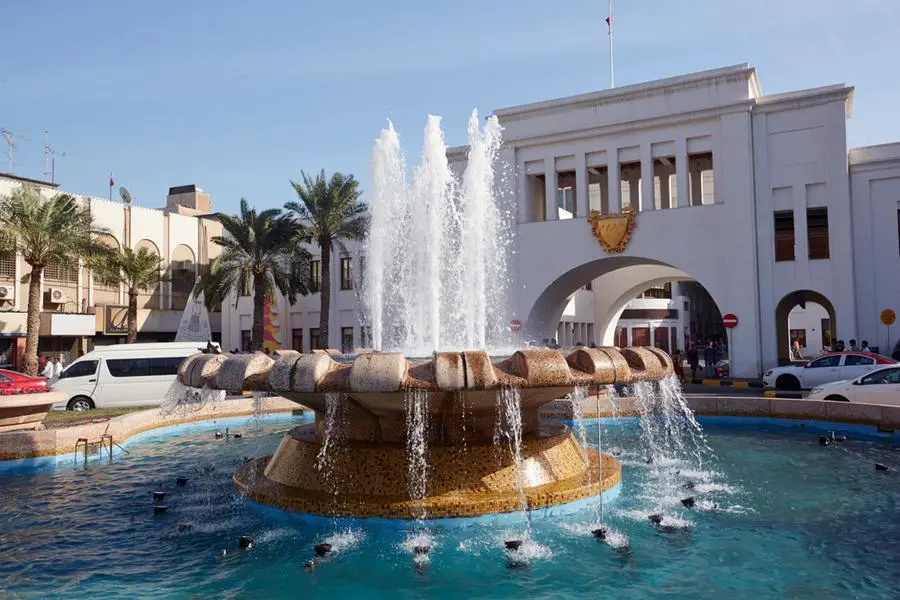PHOTO
Bahrain’s tourism chief Sarah Buhijji called for closer collaboration across the Arabian Gulf nations to create a unified tourism destination, during a panel discussion at the Arabian Travel Market 2024.
Participating in a discussion hosted by the UAE Economy Ministry, Ms Buhijji joined policymakers from the GCC in putting the spotlight on Gulf-wide collaboration, ease of inter-regional travel, and infrastructure development.
The chief executive of the Bahrain Tourism and Exhibitions Authority (BTEA) emphasised the importance of seamless tourism integration across the Gulf, highlighting its potential to accelerate sector growth and contribute significantly to the region’s economic, social, and cultural development.
“To maximise tourism revenue from our combined efforts,” Ms Buhijji said, “we need to ensure widespread awareness of these agreements across the Gulf. This, in my view, would position our region as a leader in sustainable tourism development.”
She pointed to Manama’s designation as the 2024 Gulf Tourism Capital as a prime example of successful regional collaboration. Highlighting various cultural and promotional initiatives undertaken by Bahrain, Ms Buhijji noted a significant rise in tourist activity within the country. She stressed the need for further joint ventures across the Gulf nations to build on this momentum.
Outlining Bahrain’s progress in advancing its tourism sector, aligning with national development goals, Ms Buhijji presented data showcasing the industry’s growth under the current Tourism Strategy (2022-2026). She emphasised the importance of aligning tourism with major national events. For instance, five new hotels were inaugurated in Bahrain this year to commemorate the 25th anniversary of His Majesty King Hamad bin Isa Al Khalifa’s ascension to the throne.
Ms Buhijji highlighted Bahrain’s evolving tourism infrastructure, citing examples like the Al Dana Amphitheater and the award-winning Exhibition World Bahrain. She also emphasised Bahrain’s support for all tourism and hospitality businesses, including innovative SMEs utilising the latest digital trends.
The BTEA chief executive concluded by underlining the importance of ongoing dialogue to exchange best practices and foster collaboration in advancing the Gulf’s tourism sector. “These concerted efforts,” she said, “are crucial for generating jobs, diversifying income streams, and powering the region’s GDP growth.”
The in-depth discussion also featured Khalid Al Midfa, chairman of the Sharjah Commerce and Tourism Development Authority; Fahd Hamidaddin, chief executive of the Saudi Tourism Authority; Azzan Al Busaidi, under-secretary of tourism in Oman’s Ministry of Heritage and Tourism as panellists. They all cited the planned GCC Unified Tourist Visa as a key facilitator for the region, alongside factors such as sustainability, infrastructure, and culture.
The panellists agreed that the unified visa would allow member nations to present the GCC as a connected destination, boosting accessibility and driving key performance indicators like length of stay, average spend, and employment.
Speakers noted they would continue to ensure that the travel industry positively impacts local businesses, communities, and ecosystems, contributing to the long-term sustainability of tourism across the region.
Participants also explained that current and future infrastructure will complement the GCC Unified Tourist Visa by enhancing accessibility within and between Gulf nations. In addition to ongoing investment in new and existing airports and cruise terminals, the ministerial speakers highlighted the central role of the upcoming GCC Railway in facilitating and optimising region-wide access for both domestic and international visitors.
The session was moderated by Dubai Eye presenter Richard Dean.
Copyright 2022 Al Hilal Publishing and Marketing Group Provided by SyndiGate Media Inc. (Syndigate.info).





















